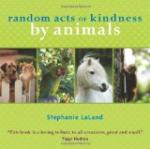As for keeping birds in a cage to sing, if you look at the hundred and fourth Psalm, you will find that they were made to “sing among the branches.” Go into the fields, and listen to their happy little songs of liberty, and take from them a lesson of thankful joy: or, if you want them at home, put crumbs and grains of corn on the windows, and they will learn to come and pick them up, and thank you with their merry notes. Only do not be so mean and treacherous as to draw a snare or close a trap over the poor things when they come, as they think, to be fed by your bounty. People who love music so well as to make an innocent creature miserable that they may enjoy its songs will wish, some day, that they had been born deaf.
But there is one thing that I am sorry to see many boys doing every spring, and which they cannot defend by any such excuses. I often wonder who was the first to begin such a disgraceful custom, the most cruel, senseless, and babyish piece of folly: I mean what is called bird-nesting. God said to the creatures, “Be fruitful and multiply,”—“let fowl multiply in the earth.” At the same time, He gave them a wonderful instinct and skill, such as man’s reason cannot imitate. The birds must keep their eggs very warm for a certain number of days, to bring to life the little creatures that are forming within them; and the eggs being so very delicate and brittle, they must also have a soft place to lie in, close enough for the bird’s body to cover them all; and be out of reach of rats, and other enemies. So, when the bird is going to lay, she and her mate set to work, and what wonderful work it is! These little creatures, without any hands, or even paws like four-footed animals, to help them, and with only the bits of stick, hay, grass, dead leaves, wool, hairs, and moss, that they can pick up with their bills, presently form a soft, snug, warm, strong apartment, as round as a tea-cup, and exactly of the proper size; placed, too, where it will be little seen, sheltered above from the wet, yet airy enough to keep it fresh and wholesome, and so smooth on the inside that even the delicate naked body of a bird just hatched cannot be made uneasy by a rough point. It costs the parent-birds a great deal of trouble; and if you leave a nest untouched from one year to another, neither disturbing the eggs nor the nestings, you will find it the next spring nicely repaired and new lined, and a new family in it. Oh! I do wish that boys, remembering how, by the goodness of our equal laws, a poor man’s house is his castle, would let a poor bird’s little nest be its castle too! He is the bravest boy who will defend the weak from the strong; and he is the best boy who loves and is kind to the least of God’s creatures for the sake of the glorious Creator.




